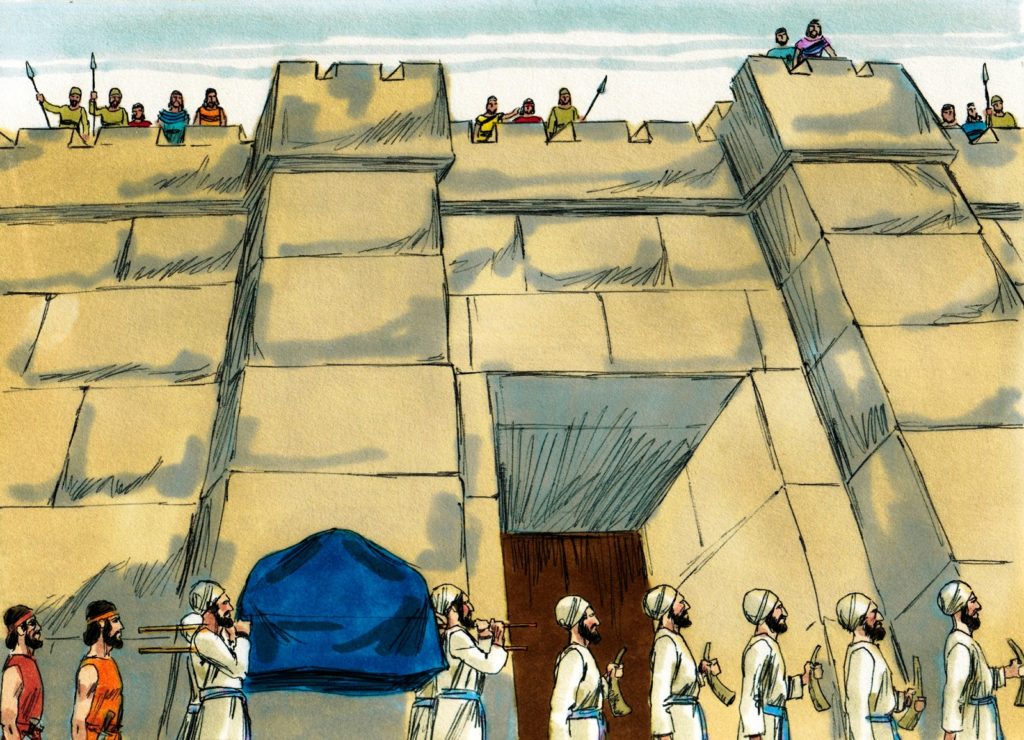Three Reasons You Should Preach Through Joshua
July 5, 2018

July 5, 2018
The book of Joshua doesn’t receive the attention it deserves. For many, familiarity with the book comes from a few verses on a few refrigerator doors. Who doesn’t have at least one item adorned with “Be strong and courageous” or “As for me and my house, we will serve the Lord”? The main point of this article isn’t to ridicule the shallowness of Christian-themed products, but rather to emphasize that the book of Joshua has much more to offer the church than “courageous” pocket stones or “as for me and my house” doormats.
Joshua begins with the end of something else; it begins with the death of Moses. Moses’ death commences Israel’s transition of leadership, and Joshua becomes the new overseer of God’s people. But the book of Joshua tells more than a story about leadership transitions and the courage necessary for such a task. It tells the story of God’s faithfulness and the proper response by his people to that faithfulness. Meaningful sermons and studies that present these invaluable truths will serve the church well.
God’s faithfulness to Israel begins with the five books of Moses. The promise made to Abraham in Genesis 12 is finally fulfilled in Joshua. What Joshua is commissioned to do—lead God’s people through the Promised Land—is exactly what God has ordained and is faithful to complete.
We see this book’s first glimpse of God’s faithfulness when the Lord commissions Joshua. God assures him, telling him “Arise and go” and “Just as I was with Moses, so will I be with you.” To be commissioned by God is to have some measure of authority bestowed by God.
The commissioning of Joshua succeeds because of the faithfulness of God. Similarly, the commissioning of every biblically minded church succeeds because of the faithfulness of God. As you preach through Joshua, you’ll be confronted with opportunity after opportunity to invite every true believer to trust God’s character and therefore to respond to his commission on their lives. After all, every Christian has been commissioned in their various spheres of authority to live their life in ways that lead people, according to God’s power and purpose, to a land that’s promised to be revealed on the last day.
Like Joshua, most Christians lack confidence and courage. There’s a reason the Lord tells Joshua to “be strong and courageous, for you shall cause this people to inherit the land that I swore to their fathers to give them.” What was true for Joshua is certainly true for every follower of Christ: we’re commanded to do what we’ve been commissioned to do. The Lord tells Joshua, “Just as I was with Moses, so I will be with you. I will not leave you or forsake you.” That same promise is made to every believer. Remember the words of Jesus to at the end of the Great Commission: “And behold, I am with you always, to the end of the age.”
Essential to God’s commission and command is God’s word. Because God is true to his word, those who follow him must also be true to all that God has commanded.
What does this mean for the congregation that reads the book of Joshua? What significance does this take on for followers of Christ?
God’s faithfulness has an intended purpose in the lives of his people. It should beckon us to remembrance.
There seems to be nothing more effective to the faith of a believer than to be reminded of what God has done. The first sign of remembrance we see in Joshua comes after the Israelites cross the Jordan River and Joshua instructs the leaders to set up twelve stones as a sign of God’s covenant with his people. This sign wasn’t intended to be a mere reminder for the present, but one that would last and become meaningful in generations to come. It was a memorial of remembrance that was to be looked upon by the children of those who had witnessed God’s faithfulness firsthand.
Consider also the great heap of stones that lay over Achan and his family. God intended this sign to discourage rebellion and sin. Achan took that which belonged only to God—and as a result, he paid the penalty for his selfish action. A congregation will be served well when it’s reminded that God is faithful to all that he commands. What memorial stones can we point our congregations to that make this point clear?
Why does the author spend eight chapters—Joshua 13–20—on the division of land? Who wants to read that?
But what we see in this painstaking distribution is unity. We see it displayed in the eastern tribes as they help secure their brothers’ land before they find comfort in their own. We see it in the way each tribe received their land as it was divided according to size. We see unity in the promise fulfilled to the Levites as they receive as their inheritance the cities of refuge—just as God promised. All of this is laid out so that the reader can see the unity of God’s people.
Much more can be said about the great book of Joshua, but for at least the three reasons listed above, any congregation would benefit from a series of sermons through it.
Here are two commentaries that will be very helpful to you in your study of Joshua. The first is Joshua: No Falling Words written by Dale Ralph Davis. Davis does a great job of outlining the major points in each chapter of Joshua. His commentary is clear, applicable, and succinct.
If you’re looking for a more in-depth work, then David M. Howard’s work from the New American Commentary Series is a good place to start.
* * * * *
For more articles in this series, click here.